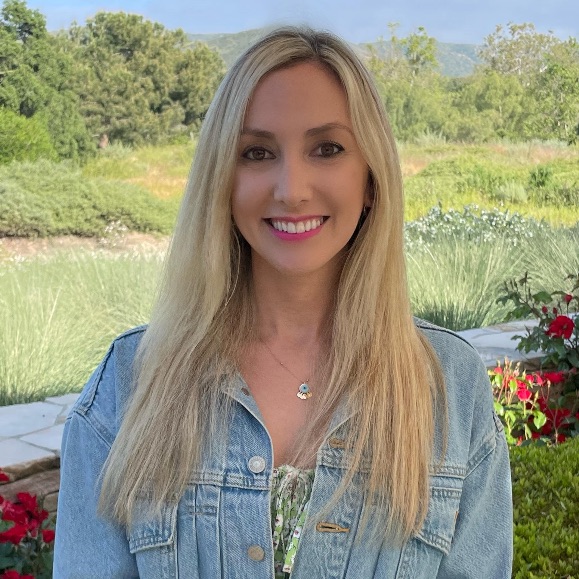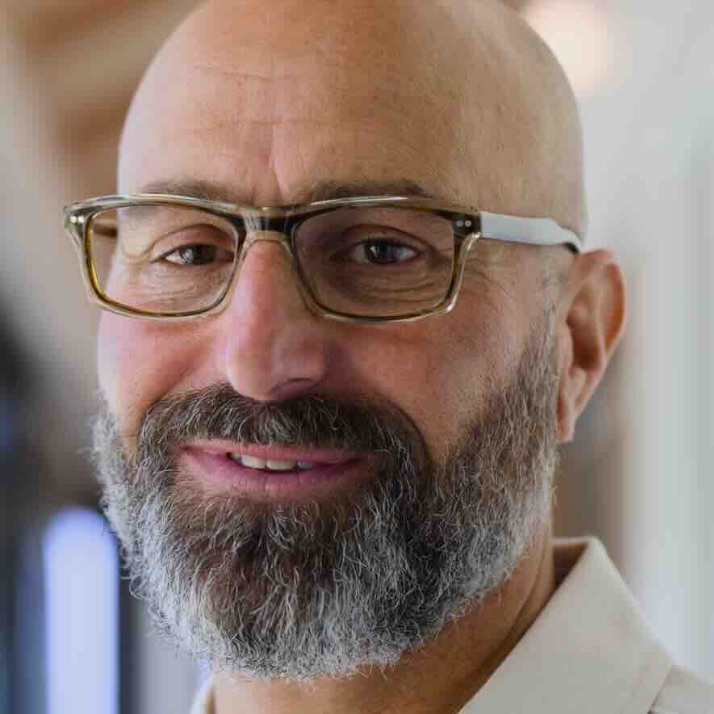Why Local Care Matters for ADHD
Finding ADHD therapy in San Jose means shorter commutes, appointments that fit school or tech-work schedules, and providers who understand local resources like academic accommodations and workplace supports. With ADHD’s executive function challenges—like time blindness, distractibility, and trouble with follow‑through—nearby care reduces missed sessions and supports consistent progress. MiResource’s directory helps you quickly identify ADHD-informed therapists in San Jose who offer evidence-based care such as CBT, skills coaching, or medication management.
Use MiResource filters to match on insurance, real-time availability, and therapy type, so you can book sooner and stick with care that fits your life in San Jose. Filter for clinicians who offer evening or weekend slots, bilingual services, or cultural competencies that align with you or your family. Local matches improve outcomes by enhancing accessibility, strengthening therapeutic rapport, and coordinating school or workplace input—MiResource makes finding that fit simple.
Local Options and Community Programs
Local resources can make it easier to manage ADHD by offering evaluation, treatment, skills groups, school supports, and family education close to home. In San Jose, you can access county behavioral health programs, nonprofit peer groups, and clinics that provide sliding-scale or insurance-based care. Many universities and health systems also run specialty clinics for ADHD across the lifespan, and crisis lines are available 24/7. Use the options below to find timely help, coordination, and community.
Crisis Support
Public Programs
Nonprofits & Support Groups
Universities & Health Systems
The Advantages of Seeing a San Jose-Based Therapist
Choosing a San Jose-based therapist for ADHD means working with someone who understands the rhythms of neighborhoods like Willow Glen, Almaden Valley, Evergreen, and Japantown, plus the pressures of downtown and North First Street tech corridors. Local clinicians know school and SELPA processes in San José Unified and the Santa Clara County Office of Education, and can coordinate with campus supports near SJSU and Evergreen Valley College. In-person care is easier with VTA Light Rail (Blue/Green/Orange Lines), Caltrain at Diridon Station, and quick access via 87, 101, 280, and 680, with parking options near community clinics by the Rose Garden and Santana Row. Short commutes mean fewer missed sessions and smoother care plans tailored to Silicon Valley work schedules.
San Jose therapists can plug you into ADHD-friendly resources like CHADD of Silicon Valley meetups, SJPL programs at branches from Berryessa to Bascom, and Parks, Recreation & Neighborhood Services community centers such as Camden, Mayfair, and Seven Trees. They can recommend quiet study spots at the Dr. Martin Luther King Jr. Library, mindfulness walks at Guadalupe River Park, or family outings to Happy Hollow Park that support behavioral strategies. Knowing the flow around the SAP Center, San Pedro Square, and the Guadalupe River Trail helps schedule stress-free, in-person appointments. This city-specific network and cultural awareness make consistent, accessible ADHD care in San Jose both practical and effective.
Holistic Approach to Mental Health in San Jose
Holistic care means supporting your mind, body, and environment together—helpful for ADHD when focus, energy, sleep, and stress all intersect. In San Jose, that can look like pairing therapy or coaching with movement, mindfulness, nutrition, and everyday routines shaped to your life at home, school, or work. It also includes building supportive surroundings—quiet study spaces, nature breaks, and community connections that make healthy habits stick.
San Jose offers rich options beyond traditional therapy: yoga at Downtown Yoga Shala in the SoFA District or Be The Change Yoga & Wellness near Willow Glen, meditation through Art of Living San Jose or community sessions at the Buddhist Church Betsuin in Japantown, and integrative care within systems like Kaiser Permanente San Jose and Santa Clara Valley Medical Center. Recharge in green spaces like Alum Rock Park, Guadalupe River Park, and the Municipal Rose Garden, or find community at San Pedro Square Market, SoFA First Fridays, and San Jose Jazz events in Plaza de César Chávez. MiResource helps you navigate these choices—matching you with ADHD‑savvy providers and local programs that fit your neighborhood, schedule, and goals.
What ADHD Means
ADHD is a common brain-based condition that affects attention, impulse control, and activity level. In San Jose, it can show up as trouble focusing at work or school, forgetfulness, restlessness, or feeling overwhelmed—but with support and strategies, daily life can feel more manageable.
About the Experience of ADHD
ADHD is a common difference in how the brain pays attention, manages impulses, and stays organized. Common signs include trouble focusing, feeling restless, acting on impulse, and forgetting tasks or appointments. In daily life around San Jose, this can make school or work harder, disrupt routines at home, and strain time management. You’re not alone—many people here find support and tools that make day-to-day life more manageable.
How Therapy Makes a Difference
Evidence-based therapies like cognitive behavioral therapy (CBT), behavioral parent training, and organizational skills training help people with ADHD build routines, manage time, and reduce impulsivity. Mindfulness-based interventions can improve attention and emotional regulation, while ADHD coaching translates coping strategies into daily life at school, work, and home. Research shows these approaches can boost follow-through, strengthen relationships, and lower stress, making life feel more manageable and rewarding. If you’re seeking ADHD therapy in San Jose, proven treatments tailored to your goals can help you see real, sustained progress.
Inside the Therapy Process
In San Jose, your first ADHD therapy session focuses on getting to know you—your goals, strengths, daily challenges, and what’s worked or not—so you leave with a clearer picture of next steps. Together, you and your therapist create a personalized treatment plan that may include evidence-based methods like CBT for attention and impulsivity, behavioral strategies, organizational skills training, and coordination with medical providers for medication when appropriate. Ongoing sessions are practical and collaborative, using real-life tools, check-ins, and adjustments to keep strategies fitting your routines at home, school, or work. Expect a supportive partnership where your feedback guides the pace and approach, helping you build confidence and sustainable habits.
Answers to Your Questions About ADHD
1. How do I know when it’s time to seek help for ADHD?
If you’re often losing track of tasks, missing deadlines, or feeling overwhelmed by distractibility, restlessness, or impulsivity—even when you’re trying your best—it may be time to seek support. Warning signs can include chronic procrastination, forgetfulness, difficulty starting or finishing projects, emotional ups and downs, or strain at work, school, or in relationships. If these patterns are causing stress or getting in the way of your goals, therapy can help you learn practical strategies and feel more in control. You’re not alone—reaching out to an ADHD-informed provider in San Jose is a strong first step toward feeling better.
2. What if I don’t feel comfortable with my first ADHD therapist in San Jose?
It’s completely normal not to click with your first ADHD therapist in San Jose—fit matters because trust, communication style, and ADHD expertise can shape your progress. You’re allowed to switch; there’s no guilt in seeking someone who understands your goals and how your brain works. MiResource makes it easy to compare San Jose therapists’ approaches, specialties, and availability so you can find a better match. Finding the right fit is part of the process, not a setback.
3. How do I explain my ADHD to friends or family?
Explaining ADHD is your choice—share only what feels right, when and with whom you feel safe in San Jose. You might describe how ADHD shows up for you (e.g., focus, time, or sensory challenges) and what helps, like reminders or fewer distractions. Set clear boundaries: choose a calm time to talk, say what topics are off-limits, and ask for specific support; it’s okay to pause or end the conversation. Remember, you don’t owe anyone details, and you can disclose gradually as your comfort grows.
4. Who can diagnose ADHD in San Jose?
In San Jose, psychiatrists, psychologists, licensed therapists, and sometimes primary care doctors can diagnose ADHD. They use a comprehensive evaluation—reviewing symptoms and history, standardized questionnaires, and ruling out other causes—and MiResource lists only qualified San Jose providers licensed to deliver accurate diagnoses and guide appropriate treatment.
5. What causes ADHD?
ADHD doesn’t have a single cause; it can arise from a mix of biological factors (like genetics and brain development), psychological influences, social experiences, and environmental exposures, and it varies from person to person. It’s not a personal failing or anyone’s fault, and many people in San Jose live well with ADHD once they understand their unique profile. If you’re concerned about attention, impulsivity, or restlessness, consider reaching out for an evaluation and support. Help is available locally, and seeking it is a strong, positive step.
6. What are the biggest misconceptions about ADHD?
Many people think ADHD is just a phase or a sign of poor discipline, but it’s a real neurodevelopmental condition that affects how the brain manages attention, impulse control, and energy. It’s not caused by laziness or weakness, and with the right strategies, people with ADHD thrive at school, work, and in relationships. Another myth is that only kids have ADHD—adults in San Jose experience it too, often in different ways. If you’re wondering about ADHD, reaching out for professional support in San Jose is a strong, positive step—not something to feel ashamed about.













